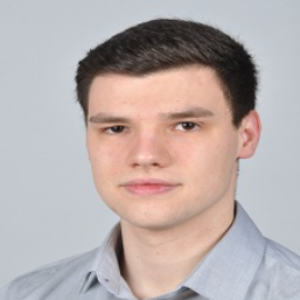Title : A mild and simple approach to the perfluoroalkenylation of aldehydes by photocatalysis using phosphines
Abstract:
(Per)fluorinated compounds are a substance class of increasing interest. The unique characteristics of molecules with fluorine substituents with regard to lipophilicity, solubility, chemical reactivity strongly affect biochemical processes such as binding ability and metabolic stability. Therefore, a lot of pharmaceuticals or agrochemicals are (per)fluorinated and the research on methods for introducing fluorine into organic molecules selectively is a steadily growing field. A well-known approach for perfluoroalkylations are photocatalytic radical reactions using ruthenium or iridium complexes as photocatalysts. Lately, it was found that by irradiation of blue light on electron donor-acceptor (EDA)-complexes of phosphines and perfluoroiodoalkanes generation of electrophilic perfluoroalkyl radicals also occurs efficiently.
Those radicals easily react with double bonds such as alkenes or alkynes. In this work the aim was to react perfluoroalkyl-radicals with the electron-rich double bond of an enamine, which is previously formed from an aldehyde and an imidazolidinone organocatalyst. After perfluoroalkylationrapid elimination occurs leading to enals with tetra-substituted, (per)fluorinated double bonds. These highly electron-deficient structure motifs are rare in literature so far and can be obtained in a single synthesis step straight from the aldehyde. There is no need of transition metals, heating, inert conditions or large excesses of reactants, rendering this reaction economically and ecologically particularly favourable. The tolerance of functional groups is high, leading to different perfluoroalkenylated enals in moderate to good yields. Surprisingly, other carbonyl groups, like esters and even ketones, stay untouched. Furthermore, the aldehyde functionality was tested towards further reactions such as their reduction to the corresponding allylic alcohols or their reactivity towards nucleophiles.



